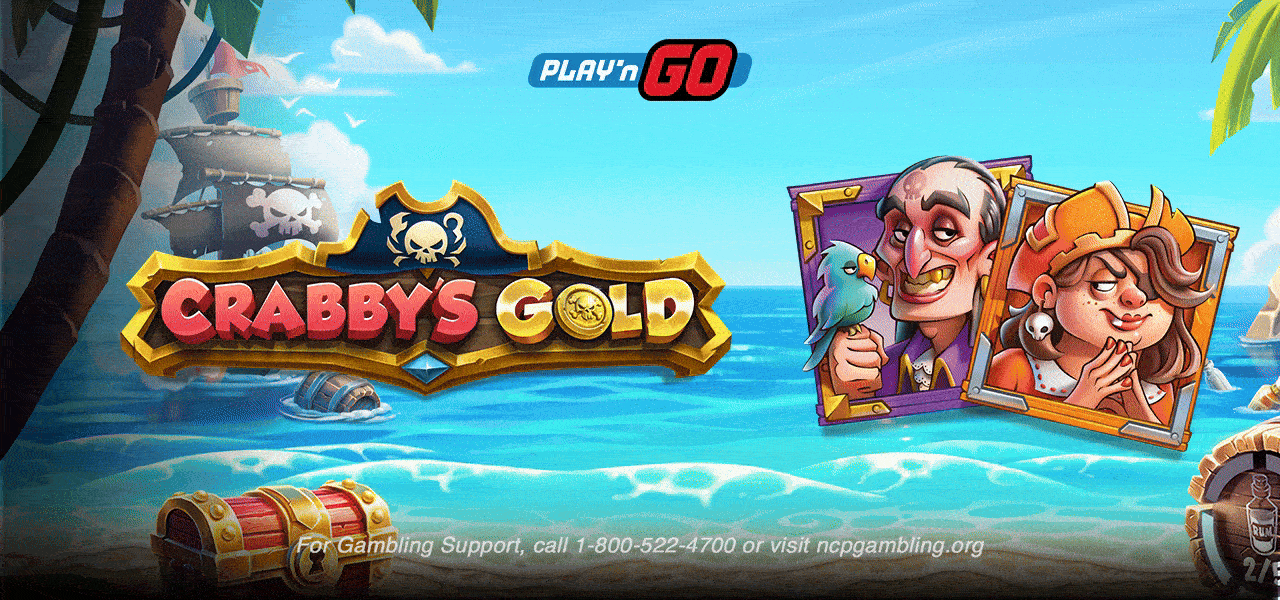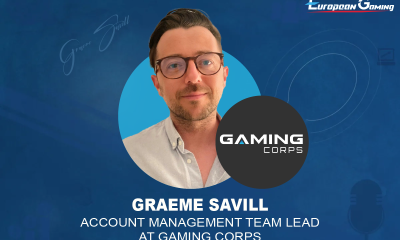Interviews
Behind Rubystone’s Rise: How PeakPlay is Set to Shake Up the Social Gaming Market
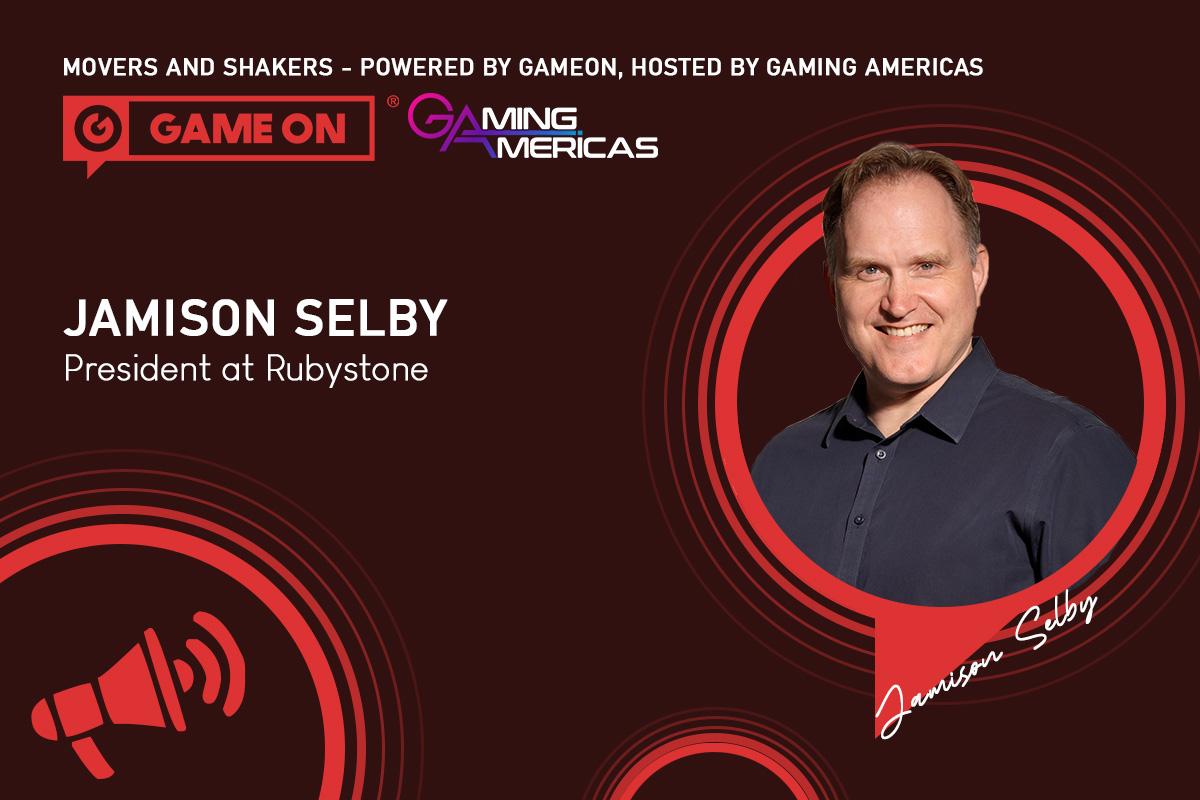
Can you give us a brief introduction to Rubystone?
Rubystone is a California-based provider of captivating, free-to-play social gameplay sites, powered by promotional sweepstakes, for the US and Canadian markets. PeakPlay, our flagship brand, is gearing up to launch in over 40 states and Canada, with the intention of shaking up the social sweepstakes industry and quickly establishing itself as a major player.
Our B2C brands lead with a player-centric focus, emphasizing the combination of responsible social gameplay with AAA content and exciting mobile gaming experiences.
In addition to our consumer brands, Rubystone also manages Scion, our B2B platform. This sets us apart by offering third-party brands a gateway into the US market with full compliance and access to premium content. The US audience is one of the most coveted in the world, and we provide operators with a distinctive opportunity to tap into this market, presenting significant growth possibilities for the right partners.
Can you tell us about Rubystone’s background, as well as your own background in the industry?
Rubystone has its roots on the other side of the Pacific in Christchurch, New Zealand. Gaming Rewards Group (GRG), our parent company, established the company to take over US operations, initially launched under their Ruby Play Network banner.
Rubystone and GRG believe firmly in the power of games to connect players and provide enthralling and exciting experiences.
My professional background includes working in and around the gaming industry for nearly two decades. I was SVP of Games & Marketing at Game Play Network and b spot, driving innovation in online horseracing for a decade. Before that, I was Senior Producer on the ABC gameshow Duel, a producer on The Real Deal, an interactive gambling show at the Venetian, adapted Deal or No Deal into an interactive real money stage show for cruise lines, and have launched more than 85 game titles, including some 70 real-money games and 15 apps.
My passion lies in bringing the company’s gaming visions to life, and Rubystone allows me to do that by leveraging all of my skills. I embarked on my journey with the company in early 2024. I strongly believe that together, we can revolutionize the social gameplay scene in the US and Canada in a manner that has never been seen before.
What inspired the foundation of Rubystone as the US-based counterpart for New Zealand’s Ruby Play Network?
The founders of GRG recognized the immense potential in the US social gaming market and were determined to tap into it as quickly as possible.
They believe their capabilities set them apart from other operators in the region. Establishing a strong presence on American soil and gaining a deep understanding of the market are vital components of their strategy. With a dedicated US team in place, they are poised to launch and eagerly anticipate partnering with established brands to shake up the North American social gaming and sweepstakes market.
Can you explain Rubystone’s core mission?
Our goal is simple: we aim to transform the social gaming scene in the US and Canada by offering players compelling brands that prioritize responsible social gameplay and place players’ interests first. This strategy involves two key components. Our consumer-facing websites will boast top-tier content from leading industry names, ensuring our players can access the latest and most exciting online casino offerings while providing top tier responsible gameplay support and fully compliant operations.
The second component is our Scion Rewarded Gameplay Platform. We envision opening up the US market to global brands, allowing them to captivate audiences with highly engaging content. We aim to foster innovation and empower brands to access the US market through a fully legal avenue. Through our full featured platform and trained live operations teams, brands gain entry to over 40 states and Canada, offering significant growth opportunities for all parties involved.
In an increasingly competitive sweepstakes market, how will Rubystone differentiate itself from its competitors?
The social games and sweepstakes market is insanely competitive, but we are well-positioned to tackle this. Our strategy pairs the expertise of our dedicated US-based management team with the innovation, proficiency and development strength of our New Zealand team. This approach positions us to enter the market aggressively and swiftly establish ourselves as key players.
One of our most powerful market differentiators is our Scion platform, built to run fully compliant operations in over 40 US states and all of Canada. This unique platform enables us to introduce new brands for various third-party partners, including those familiar with the US market but previously unable to launch here. Our capability to not only provide a platform, but run full white-glove live live operations for multiple brands gives us a unique market position.
What changes do you foresee for the social casino and sweepstakes industry’s future, and how is Rubystone positioned to handle them?
Right now, everybody is looking to grab a slice of the social sweepstakes pie. A whole wave of new entrants is competing to get into the market, and this will present a lot of challenges. Of course, the cream always rises to the top, and we are extremely confident we will do that.
Our experience in the industry and the powerful capabilities of the team backing us ensure we will be able to stay ahead of other operations as competition increases and user acquisition costs rise. We have access to AAA gaming content, industry-leading partners, and marketing channels many operators will struggle to get.
Rubystone’s plan is to establish itself quickly as a leading platform in the US market, integrating the best games and gamification tools on the market, some of which have never been launched in the US before. This, combined with strong marketing across a diverse range of platforms, will help us position ourselves strongly.
Right now, the social games and sweeps industry is under intense scrutiny, both from outside and within. However, skill gaming and fantasy sports have both come under similar pressure and have endured, and I see no reason why the outcome will be any different for social games and sweeps.
What are the long-term goals for Rubystone?
We are an extremely ambitious team at Rubystone, and we have laid out detailed plans for how we plan to succeed and where we plan to go in the coming years. Firstly, though, we must establish ourselves as a strong presence in the US and Canadian markets.
PeakPlay, our leading B2C brand, will play a major role in the early days of our journey, and we will utilize our extensive marketing capabilities to help establish it as a leading brand. We also want to set an example with responsible social gameplay and fully compliant operations.
2025 will be all about continuing that expansion and onboarding a handful of brands onto our Scion platform. We want to provide brands with an exciting and compliant route into the US market. There is also the possibility of working alongside brands in other sectors that may be considering the social games and sweeps market as a revenue stream but do not have the tools or industry knowledge to do so.
Our goal is to establish ourselves as an industry powerhouse and help power a new era for social gameplay in North America. Of course, we’re not going to give away all our secrets, but you can trust me when I say there are plenty of surprises and excitement in store.
Safety and compliance are at the core of everything the company does. Can you tell us a little bit more about how the company will continue to tackle the US’s increasingly complex regulatory landscape?
The social gaming market is crowded right now, and getting more crowded. The potential of the market may draw competitors who are less concerned about compliant operations. Despite the competition, we remain confident in our ability to stand out by prioritizing compliance and safety in everything we do. We’re not running fast and loose. We are here to stay. We’re setting up our operations to compete with the top players. With close collaboration between GRG’s core team in New Zealand, and our experienced US legal team, we ensure not only adherence to existing regulatory standards, but that we are prepared to adapt to new requirements as regulations evolve.
From our customers’ perspective, our commitment to their well-being will be evident in the comprehensive responsible social gameplay measures we implement. Our sites will provide players with access to a wide range of educational tools and resources, including time-outs, purchase limits, and self-exclusion. Our customer support teams will also be on hand to help players who feel they need access to further resources or support.
Can you give us more information about the company’s B2B platform and your future plans for it?
The Scion Rewarded Gameplay Platform is a cutting-edge social gameplay platform set to light up the industry in the US and Canada. This comprehensive platform offers both a full-featured-gameplay platform and comprehensive live operations support for third-party partners, ensuring a secure and compliant entry into the market with the potential for rapid growth.
Scion serves as a complete solution for our partners. It’s much more than a basic Player Account Management system. It encompasses branded website development, game acquisition and management, legal compliance, payment processing, player communications and engagement strategies, tools for responsible social gameplay, top-notch customer support, VIP programs, and much more. Whatever our partners require, the Scion platform delivers.
Everybody wants to enter the US market right now, and we have the capabilities to help the right brands do so.
Interviews
Review Fatigue Is Real: How to Make Casino Comparisons Clear, Honest, and Human

Sebastian Jarosch is the founder of Mithrillium Media Ltd, and a very famous figure in the iGaming industry. His contributions to the market have been immensely influential. Jarosch has overlooked several projects relating to the online gambling market, most notably those involving affiliates. Because of his past works, we believe he is uniquely qualified to address the topic of Review Fatigue, that seem to be plaguing the industry right now.
Actions speak louder than words. And Jarosch’s actions have earned him several of the most notable industry awards. Among the most notable are the Casinomeister 2020 Awards for Best Casino Group, the AskGamblers Awards for Best Partner in 2021, and the Affpapa Awards Affiliate Programme of the Year 2022.
Interview Questions:
What is “review fatigue,” and why do you think it’s becoming a growing issue in the iGaming space?
Review fatigue happens when players are faced with repetitive, overly long, or generic content. With so many casinos offering similar bonuses, games, and licensing, users quickly lose interest if every review sounds the same. Many reviews lack real insight and simply list features without context, often sounding too good to be true. As a result, players tend to skim or move on entirely, especially if they’ve already seen the same structure and wording on multiple other sites.
How can overly technical or overly promotional content alienate users instead of helping them?
When content is too technical, it can confuse or intimidate newcomers. Ideally content is educational and written with the player in mind. On the flip side, a sales pitch feels dishonest, especially to experienced players who know what to look for. Users are looking for clarity and guidance, not marketing sugar coated casinos. If a review sounds like it’s trying to sell rather than help, it erodes trust immediately. Players want transparency, real pros and cons, not just buzzwords.
What are the most important things players want to see in a casino comparison, and what can we safely leave out?
Players want to know the promotions, payment methods, withdrawal speeds, licensing, game variety, and reliability of a casino. They also care about things like support quality, KYC, ownership, RTPs, and real player feedback. What they don’t want is generic content that could apply to any casino and offers no real value. Sites like Casino-Groups help players pick the right casinos based on individual preferences.
How do you balance clarity with completeness when writing or designing reviews?
It’s all about prioritizing information and guiding the reader. We aim to answer the most important user questions right at the beginning, often using summary tables to make things easier to digest. More detailed information comes later for those who want to dive deeper. It’s important to avoid walls of text and explain complex terms in plain language. The goal is to give users exactly what they need to know, without bombarding them with unnecessary information.
Do players trust shorter, more digestible content more than long-form reviews today? Why or why not
Shorter content tends to convert better because users find what they’re looking for quickly, without digging through long paragraphs full of filler. Dense, meaningful content with no waste often performs best. A short, clear, and well-structured review can build more trust than a long one filled with fluff. That said, some players do enjoy longer reviews, especially when they’re broken up with visuals, clear sections, and genuinely useful insights.
What role does tone of voice play in making reviews feel more human and less “salesy”?
A review should feel like it’s written by a real person who’s an expert in the field, not by ChatGPT or a salesperson. We use conversational language where possible and speak directly to the user. If something’s bad or a bonus is just average, it needs to be mentioned. That kind of honesty builds far more credibility than flashy design or empty buzzwords.
How do you verify and present information (e.g., licensing, terms, payment speed) in a way that’s both accurate and user-friendly?
We manually verify everything by signing up, testing support, and reading the fine print. We also check licenses through official registries and monitor user feedback on watchdog sites. To present the information clearly, we use tables, lists, screenshots, and both internal and external links to relevant pages. All our reviews follow a consistent format so players know what to expect and can easily find the details they need.
Have you experimented with visual elements like comparison tables, badges, or rating meters to reduce cognitive load?
Pictures speak a thousand words and help break up content into smaller, more digestible sections, reducing review fatigue. We use comparison tables for things like bonus terms, game selection, and payment methods. Every review includes a rating, and we apply badges to highlight our top casinos. This makes it easier for users to compare options at a glance and make smarter decisions with less effort.
What strategies do you use to keep review formats consistent while still personalizing the experience for different user types?
We follow a consistent structure that works well for both SEO and conversions. However, if a specific area needs emphasis or additional context, we’re happy to deviate from our standard format to ensure topical completeness. Some casinos offer unique features that deserve extra attention, and in those cases, we’ll add dedicated sections. The framework is consistent, but we stay flexible where it counts.
Looking ahead, how do you think casino reviews will evolve to meet changing user expectations and attention spans?
We’ll see more interactivity, personalization, and smarter use of data. Reviews could adapt in real time based on user preferences, highlighting crypto options for one user and game selection for another. AI chatbots may help users find the best match and answer questions about a casino instantly. Integration with platforms like Discord or Telegram where players can exchange themselves could also make reviews feel more social and trustworthy. Reviews need to become sharper, more authentic, and more genuinely helpful than ever before.
Interviews
Curated for impact: How Infingame is redefining games aggregation
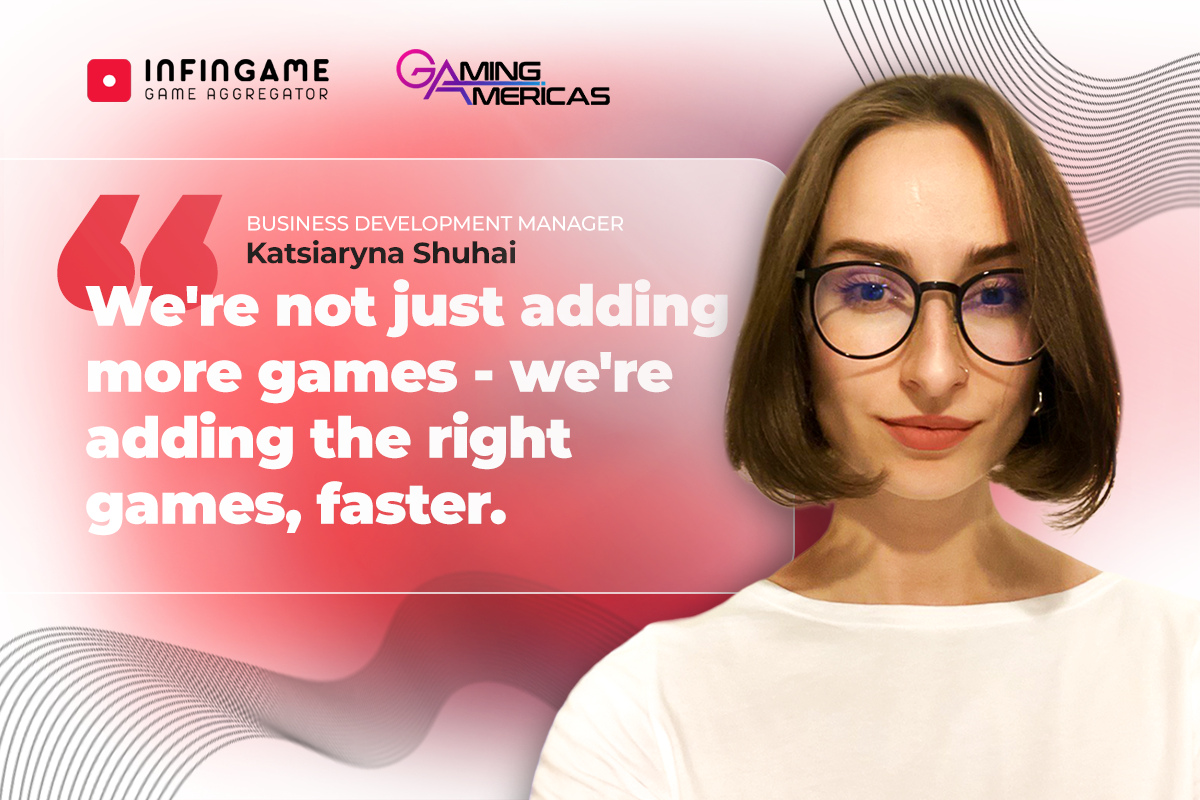
In an exclusive with Gaming Americas, Katsiaryna Shuhai, Business Development Manager at Infingame, explores how the supplier’s curated approach to casino content is redefining the games aggregation space.
Katsiaryna, can you begin by introducing yourself – what does your role at Infingame entail?
As the Business Development Manager at Infingame, I lead strategic partnerships and integrations with game studios and content providers. My role focuses on identifying standout gaming content that fits our platform’s vision, negotiating collaboration terms, and ensuring smooth onboarding.
With a background in advertising, I bring a strong focus on relationship-building, open communication and a personalised approach to each partner. I believe that genuine connections and tailored solutions are key to driving successful, long-term collaborations.
Infingame has recently integrated with innovative game studios, including TaDa Gaming and Popiplay. What factors influenced your decision to partner with these two studios in particular? How have they impacted your partners’ engagement and retention across Latin America?
Our decision to partner with TaDa Gaming and Popiplay was driven by each studio’s ability to deliver innovative, high-performing content that resonates with players across our key markets, including Latin America. Popiplay offers energetic, entertainment-led slots, while TaDa brings a diverse mix of popular formats such as crash and fishing games.
We’re confident that these integrations will help our partners boost player engagement and retention, particularly in Brazil, Mexico, and Colombia. Both studios align perfectly with our goal of delivering meaningful and localised content.
With 16,000+ games from 200+ providers available via Infingame’s platform, how do you ensure that new titles don’t just add volume but deliver real value to your operators?
While our platform boasts a vast library of games, we prioritise quality over quantity. It’s important to deliver content that we know players will enjoy, rather than just sheer volume.
When adding new content to our platform, each new title undergoes a rigorous evaluation process to ensure it meets our standards for player engagement, technical performance and market relevance. By focusing on curated content that aligns with operator needs and player preferences, we ensure that every addition enhances the overall value proposition for our partners.
Infingame is now taking a much more curated approach to game studio integrations. What sparked this change in strategy?
The shift towards a more curated approach stems from our commitment to delivering tailored, high-quality content that meets the specific needs of our operators and players. We want to make sure that the games on our platform are suited to local player behaviours, technical requirements and localised to each individual market.
As the iGaming industry continues to evolve, and more markets begin to embrace gambling regulation, it’s essential to focus on partnerships that offer strategic value, ensuring that each integration contributes meaningfully to our platform’s objectives and enhances the user experience.
With more selective onboarding of game providers, how does Infingame evaluate which studios to integrate with? What criteria do you consider?
We evaluate potential game studio partners using a rigorous set of criteria to ensure quality and compatibility with the Infingame platform. Key factors include the uniqueness and quality of game content, with an emphasis on standout mechanics, visuals and immersive experiences. Technical reliability is absolutely crucial – we assess API stability, integration efficiency, and overall tech performance to guarantee seamless operations.
We also consider the studio’s reputation and regulatory compliance across our target markets, ensuring that they meet legal standards and industry expectations. A strong track record of player engagement and retention is another important indicator of long-term value.
Additionally, we look for a clear commitment to innovation, including new formats or features that enhance the player experience. This selective onboarding approach helps us maintain a diverse, high-performing game portfolio that supports our operator partners and meets the evolving demands of players worldwide.
How will this refined integration strategy impact your existing and prospective partners, particularly in terms of content diversity and speed to market?
This refined integration strategy empowers us to deliver greater value to both existing and prospective partners by emphasising quality over quantity. By curating a portfolio of high-performing, innovative content, we ensure that our partners can offer games that genuinely resonate with their target audiences and stand out in a crowded marketplace.
Our focus on onboarding only top-tier, reliable studios means partners benefit from diverse and engaging content that drives player retention and growth. Additionally, by streamlining technical integration and reducing operational friction, we can accelerate speed to market, enabling our partners to launch new titles more efficiently and capitalise on emerging trends.
This agility is key to maintaining a competitive edge. Ultimately, our strategy is designed to foster long-term success for our partners by delivering not just more games – but the right games, faster.
Finally, what’s next for Infingame? Are there any upcoming partnerships, features, or innovations that you can give us a sneak peek of?
Looking ahead, Infingame is committed to expanding its portfolio through strategic partnerships with studios that deliver innovative, high-impact content. Our focus remains on curating games that not only entertain but also enhance player retention.
At the same time, we’re investing in new technologies and platform features – such as advanced tournament mechanics, real-time engagement tools, and personalised player experiences – to help our partners stay ahead of industry trends.
These enhancements are designed to drive deeper engagement, increase revenue potential, and strengthen the overall value we bring to our operator network as a trusted, forward-thinking iGaming aggregator.
Interviews
Sweepstakes’ next chapter: Exploring global potential, US regulations and player preferences

Sweepstake casinos have seemingly come out of nowhere to dominate the discourse across the US. We spoke to a number of providers who have entered the space to see what their expectations are, and how far the sweeps vertical can go alongside the traditional casino experience.
With/ Rory Kimber, Commercial Director at LuckyStreak, Daniel Mitton, Chief Business Development Officer at Sweepium and Allan Turner CEO at Cogniplay
What games are best received by sweepstake customers? Traditional games or more gamified titles such as boosted multipliers or big jackpot games?
RK: I would say that for live dealer, it’s a traditional genre of games that are popular with sweepstakes casinos players, and as we’ve seen, particularly Blackjack. US players are more likely to play in land-based casinos, so the authentic and human aspects of live dealer games naturally resonate well.
We’ve seen a big uptake of all our core games, which was gratifying, but that’s not to say the gamification aspect doesn’t play a role, as our leaderboards and tournaments are popular and very effective, particularly with this segment of players that are looking for more than just gameplay.
In slots it seems to depend on the brand; some operators bring in players who want traditional maths and features but an increasing number are seeing strong performance from new games with unique features that never lose your attention for a second. The providers that create games with sweepstakes players in mind will be more likely to see success.
AT: What we’re seeing is that players seem to lean towards games that feel quite traditional and familiar to them in most cases. Although, they often come with features like fixed jackpots that scale with your bet, which adds a bit more excitement to their playing experience. I would say that users are gradually getting more experimental over time, and as the prevalence of non-US based games providers increases on sweeps sites, with them applying the sweeps mechanic to their games, innovation is certainly speeding up, and this is being embraced by users.
DM: What we’re seeing from the U.S. audience is a clear preference for high-energy, feature-rich games. Titles that include interactive mechanics, boosted multipliers, or big-event style moments consistently drive the most engagement. These kinds of experiences are more immersive, more social and they give players a sense of momentum and excitement.
That said, traditional slots and classic-style games still play an important role especially as an entry point for new users. Over time, players really respond to content that feels fresh, dynamic and packed with surprises. It’s not just about spinning, it’s about participating in an entertainment experience.
Do you tweak titles to be unique to sweepstake casinos, or does the same product respond well on traditional online casinos and social?
AT: Right now, we mostly work with studios to handle any tweaks, though in general, the classic versions of games tend to perform well across different platforms. One area that we do see more interest in the sweeps market, is in things like fishing and shooting-style games, which have a real captive audience in the US, due to the history of fish table games in the market. One tweak that a lot of brands are employing is asking their game providers to create branded games for them, which in a lot of cases tends to perform very well, particularly for the more well-known brands.
RK: We tweak our games to be compliant first and foremost, but in terms of the actual gameplay in the Live games, it’s pretty much the same.
For social casinos in particular, there are necessary changes because the number of coins people win can be enormous, so that requires some thought too. For slots, we’ve seen our providers make sure the fastest gameplay settings are defaulted, along with all their features enabled that some regulated markets don’t allow, but really a lot of the time the gameplay experience is comparable.
That being said, providers who build sweepstakes and social titles from the ground up do go about things in a different way and have those players front of mind throughout the development process and that has been successful.
DM: We’ve found that the core product translates well across both traditional online and sweepstakes platforms especially when it comes to high-quality, well-designed games. The fundamentals of engaging gameplay, strong visuals and smooth mechanics resonate just as strongly with sweepstakes players as they do in real-money or social environments.
That said, there are subtle but important differences in how players engage. In sweepstakes, we tend to see more interest in longer session times, progress-based features and community-driven elements, which slightly shifts how we position and present the content. For example, boosted multipliers and timed events do especially well in the sweeps format because they align with that desire for ongoing entertainment and personal achievement.
Ultimately, a strong core game can succeed in both spaces. It’s about making the right adjustments to match player expectations keeping the experience fresh and engaging.
Do you think sweeps will become as popular throughout Europe as they are in the US?
RK: I think the elephant in the room is regulation. Sweepstakes are a popular product but are inextricably linked to what local regulation allows. For European markets where the real money industry has experienced stringent regulations I believe there is a space for sweepstakes casinos to come in and give players an experience more comparable to what they enjoyed a few years ago. I’m no expert on the legalities of sweeps in each of these jurisdictions but I’d be very surprised if they don’t gain a foothold in the European market somewhere.
DM: There’s definitely potential but the dynamics are different. In the U.S., the appeal of sweepstakes is closely tied to accessibility and the ability to engage across most of the country, on a state by state basis. That’s given the model a unique edge in the U.S. market.
In Europe, where the digital entertainment and gaming landscape is already well-established, the path might look different but I do think there’s room for growth, especially in areas where lightweight, low-barrier gaming experiences are in demand. The key will be localization, cultural relevance and regulatory framework. The model works best when it speaks directly to the habits and preferences of each market.
AT: Personally, I think it’s all about how market conditions change in Europe in the coming years, particularly with regards to regulation. In the US sweeps has become particularly popular because it has filled the void left by the fact there are still so few regulated states for real-money gaming. Does this void exist in Europe in the same way? Well, no, not in most countries, not now anyway. However, should regulators continue their current path to over-regulation, who knows how that will end up. There are already several sweeps’ sites operating in a few European markets, that are already quite over-regulated, and that trend could well continue apace.
Sweepstake casinos have shot to popularity in a swift time frame. Where do you think they’ll be in 5 years’ time?
AT: This is the billion-dollar question on everyone’s lips right now, with regards to sweeps, it’s certainly a question we get asked a lot! Obviously, there is a lot of noise about sweeps at the moment, and a huge number of variables to consider, and its’ anyone’s guess how it will all turn out in the end. Ultimately there is a huge demand in the US for online gaming products, and it seems logical, as part of free market economic theory that unless regulated gaming can progress much more quickly than it is now.
RK: Well again the obvious answer is what US regulators do – both in terms of the speed of opening up new states to online casinos, to how they respond to the growth of the sweepstakes sector. If things carry on largely the same I can see sweepstakes being at a similar level in terms of market share, perhaps even growing as more providers and new operators enter the market and improve the product offering.
I think overall it will be a balance, as certain areas in the US close off sweepstakes, other markets round the world will open up, so I see a steady path ahead on a global level – although perhaps not a repeat of the explosion we’ve just witnessed. Social is a different kettle of fish: I believe it will continue to grow rapidly and become linked in more interesting ways with the acquisition activities and loyalty programmes of real money gambling companies, whether they be land based or online.
DM: Looking five years ahead, I see sweepstakes platforms evolving into full-scale entertainment hubs. The future isn’t just about gameplay, it’s about creating connected, content-rich environments that bring together digital experiences, creator-driven events and community engagement.
We’re building platforms where people don’t just come to play, they come to interact, explore and be part of a larger digital culture. That could mean live-hosted experiences, interactive tournaments or even crossovers with music, sports or media. The sweepstakes format is incredibly flexible and that gives us the ability to adapt fast and scale with the culture. In short, we’re not just part of the digital entertainment world, we’re helping shape where it’s going next.
-

 Canada7 days ago
Canada7 days agoAGCO Fines Great Canadian Casino Resort Toronto $350,000 for Serious Regulatory Violations Linked to Impromptu After-Party on Gaming Floor
-
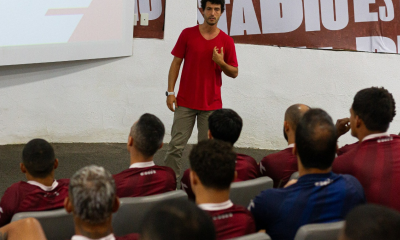
 Compliance Updates7 days ago
Compliance Updates7 days agoEsportes da Sorte holds forum on “Integrity in Sports” with Ceará and Náutico
-

 Latest News7 days ago
Latest News7 days agoBlokotech unveils Cristian Tonanti as new Casino Partnership Manager
-

 Latest News7 days ago
Latest News7 days agoEDGE Boost Named Preferred Payment Method for World Series of Poker Event Series
-
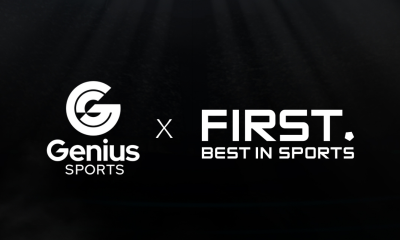
 Latest News7 days ago
Latest News7 days agoFIRST and Genius Sports Extend Landmark Data Partnership, Powering Continued Growth
-

 Canada7 days ago
Canada7 days agoIGT and Atlantic Lottery Sign Eight-Year Video Lottery Central System Technology Agreement
-

 Latest News6 days ago
Latest News6 days agoNASCAR & iRacing Renew Partnership with PlayVS
-

 Latest News4 days ago
Latest News4 days agoRivalry Reports Full-Year 2024 Results as Strategic Turnaround Takes Hold, Operating Loss Narrows, and Efficiency Improves


